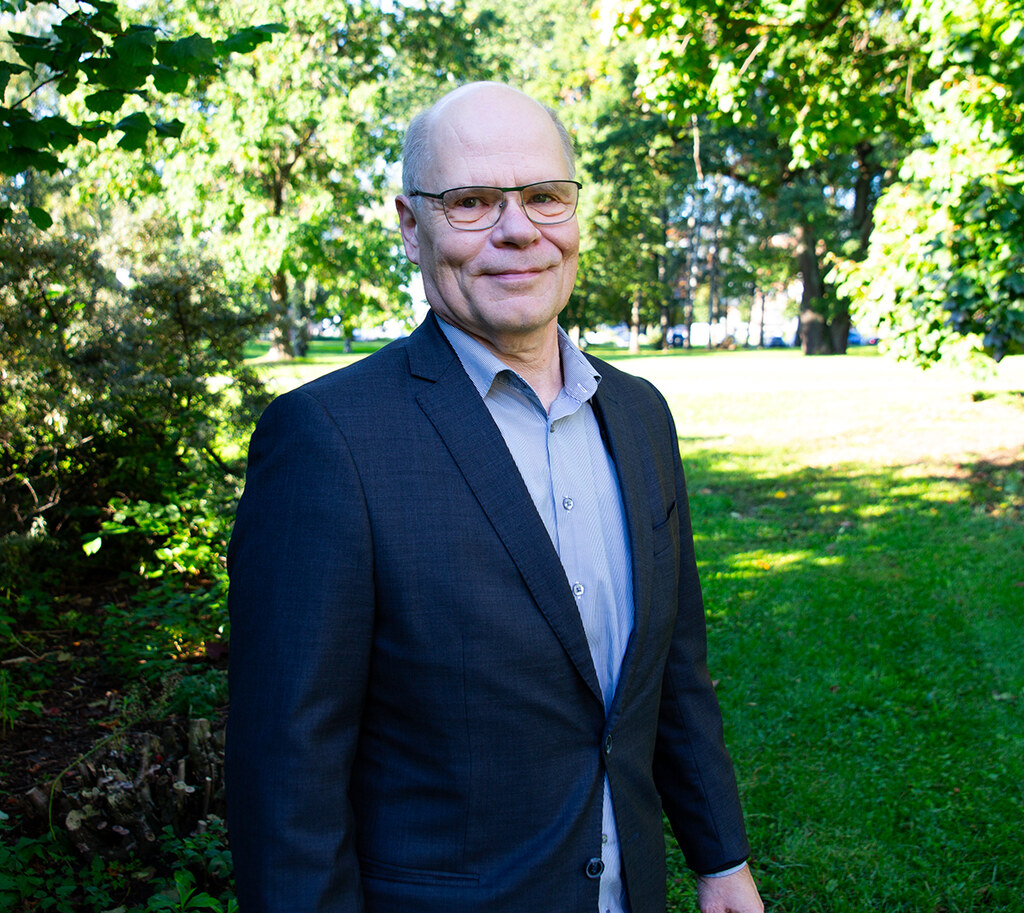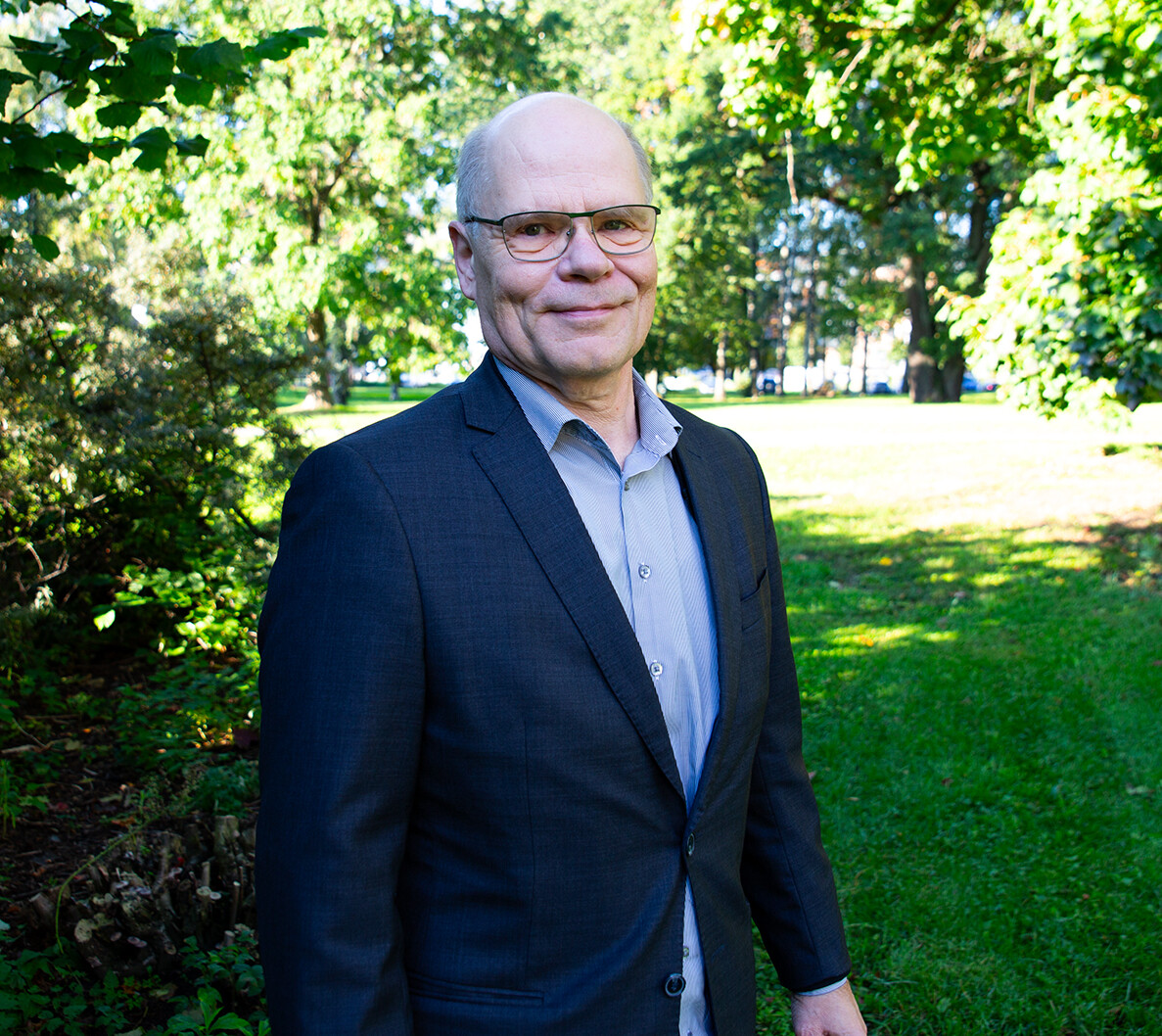
Heikki Uusi-Honko is the new Chair of Nordic Energy Research in 2025
As we enter 2025, Nordic Energy Research is ready to embrace the opportunities that the new year brings. This entails the welcoming of our new Chair of the Board, Heikki…
As we enter 2025, Nordic Energy Research is ready to embrace the opportunities that the new year brings. This entails the welcoming of our new Chair of the Board, Heikki Uusi-Honko, Chief Adviser at Business Finland. Heikki will take on the role as Chair after Marie Claesson, Programme Manager at the Swedish Energy Agency.
Heikki has more than three decades of experience in research and innovation funding, predominantly through various positions at Business Finland, ranging from Technology Adviser to Development Director. He has worked internationally and with a Nordic perspective for many years and led the small Business Finland Liaison Office for EU R&D in Brussels. In 2013–2017, he worked in Oslo as Administrative Manager for Nordic Energy Research’s sister organisation, Nordic Innovation. Now, as part of the Nordic Energy Research Board, Heikki reminisces about a lot of good memories from his years in Oslo.
While Heikki’s early career centred around combustion process modelling and factory-level energy optimisation – he holds an MSc in Process and Heat Engineering – he acknowledges a shift in focus over time. Now, Heikki sees himself as more of a policy generalist, particularly in the digital realm. As a result, he expects to contribute to the operational structure of Nordic Energy Research, rather than sharp points about the specifics of the research agenda.
Given his extensive background in the energy sector, we asked Heikki about his expectations for the coming year as Chair of Nordic Energy Research.

Heikki Uusi-Honko, Chief Adviser at Business Finland and Chair of the Board of Nordic Energy Research in 2025.
What are your key goals as Chair of Nordic Energy Research in 2025, encompassing the board and institution?
Boards with rotating chairs should always keep continuity in mind, both in terms of reaping the benefits of past initiatives and preparing for new opportunities in the coming years. I try to do my work accordingly so that Nordic Energy Research remains in good shape, with long-term strategic continuity and, at the same time, the agility to seize new opportunities as they arise. The official Nordic cooperation is entering a new strategic period in 2025, and the successful implementation of actions on different timescales is probably the most important overall goal.
I’d also like to emphasise the importance of “Nordic added value,” which means that we should invest our resources in activities that are particularly smart when carried out at the Nordic level, rather than at the national or European level. This is where we must constantly keep our antennae up and listen to what policymakers, research communities and, last but not least, industries and the business sector can suggest to us.
What major themes do you see as crucial in the upcoming year and how do you plan to address them?
Europe’s ongoing transition to sustainable and affordable energy and the new global geopolitical reality underpin many of the energy-related discussion topics. An interesting cross-cutting theme for Nordic Energy Research is therefore how common Nordic structures and strategies can be linked to a broader European energy landscape. For example, themes such as the hydrogen economy or energy systems can best be regarded in a European context. The Nordic region is already in many ways the “most integrated region in the world”, as the overall goal of the official Nordic cooperation for 2030 reads, but we do not always see the opportunities of this influencing the European regional strategies as well.
Also, looking at the great geopolitical tensions we are facing, issues of security and resilience are evidently important. Suddenly these topics are much more tangible than they were just a few years ago. I think this is where we need to see our shared interests in the Nordics while at the same time bringing stability around us.
Based on your perspective and experience, what are Nordic Energy Research’s strengths and areas for improvement?
I think that the Nordic collaboration between different actors in the field of energy research certainly creates a lot of positive network effects, so I’d say that reinforcing and invigorating this cooperation is already a strength for Nordic Energy Research. Perhaps it can be made even more tangible. When I look at the Nordic industries and businesses, which are highly interlinked today, sometimes I wonder if our public policy debate fully takes the opportunities created by these shared structures into account.
Another strength is certainly the staff, who possess many skills and capabilities, not least the ability to take a pronounced Nordic view on matters. With a strategy and governance that help Nordic Energy Research work efficiently with the right Nordic-added-value topics, I’m sure good results will be achieved.
By the end of 2025, what specific achievements do you envision under your chairmanship?
I hope that, as 2025 is the year of the Finnish chairmanship, we will see good participation from Finland in Nordic Energy Research’s activities. In terms of volume, yes – but above all, some high-relevance, high-impact projects where multiple stakeholder groups join forces to find the best Nordic answers to today’s pertinent energy issues.
